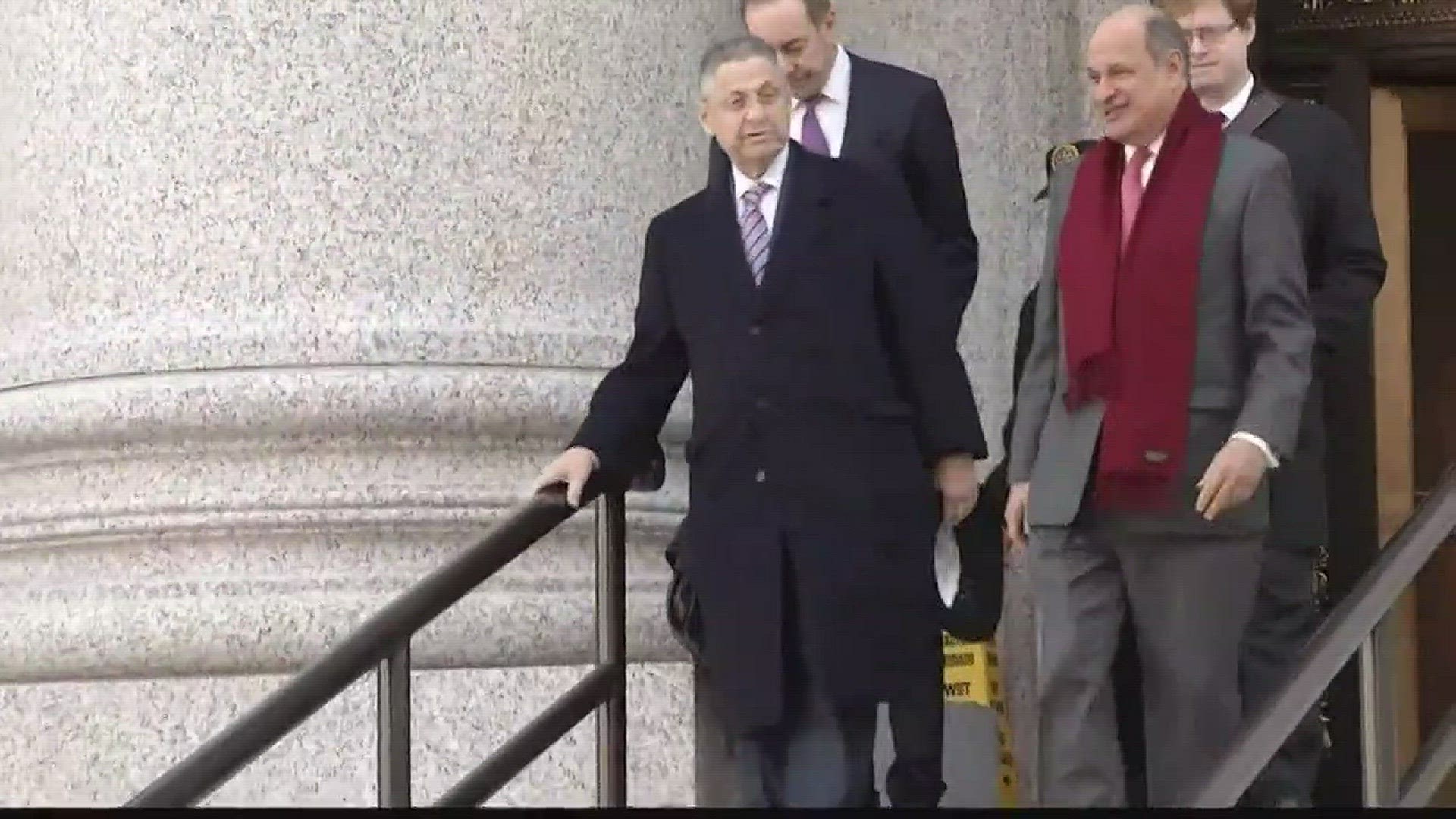ALBANY - Former Assembly Speaker Sheldon Silver, once one of New York's most powerful politicians, had his felony convictions and 12-year prison sentence overturned Thursday by a federal appeals court, but prosecutors intend to seek a new trial.
Silver, D-Manhattan, was convicted in November 2015 of accepting $4 million in bribes and kickbacks disguised as legal payments for taking government action on behalf of a Columbia University cancer researcher and two real estate firms, including Glenwood Management, then the state's top political donor.
On Thursday, a three-judge panel from the 2nd U.S. Circuit Court of Appeals overturned Silver's extortion, fraud and money laundering convictions, sending the case back to the trial court.
The judges pointed to the U.S. Supreme Court's 2016 decision on a case against former Virginia Gov. Bob McDonnell, which found prosecutors must prove a politician did more than just set up a meeting in order to be convicted of making an "official act" on someone's behalf.
The decision Thursday was not based on the merits of the evidence against Silver, which the judges ruled was strong enough to uphold conviction.
But Silver's appeal asked the judges to look at whether the jury received proper instruction before deliberating, since the instructions from U.S. District Judge Valerie Caproni were crafted before the McDonnell decision and were broader than it allowed.
"Given the teachings of the Supreme Court in McDonnell, and the particular circumstances of this case, we simply cannot reach that conclusion," Circuit Court Judge Jose Cabranes wrote in the Thursday decision. "Accordingly, we are required to vacate the honest services fraud and extortion counts against Silver, as well as the money laundering count."
Silver, 73, became a heavily influential figure in New York government during his two-decade reign as Assembly speaker, serving with governors and Senate leaders as the so-called "three men in a room" that crafted budgets and major legislation in closed-door negotiations.
He stepped down as speaker shortly after he was charged in 2015. His conviction later that year led to his automatic ejection from the state Legislature, where he had been a member since 1977.
Caproni sentenced the former lawmaker to 12 years in prison and a $1.75 million fine in May 2016, but Silver was allowed to remain free pending his appeal.
Silver's case centers on his outside work as an attorney, where he received more than $4 million in legal referrals that stemmed from the Columbia researcher — who referred him mesothelioma clients and received state grants from Silver for research — and the real estate firms.
The court's decision Thursday left open the possibility of a new trial in District Court because the court ruled there was enough evidence for a jury to reach its conclusion.
Acting U.S. Attorney Joon Kim said prosecutors intend to retry Silver. Kim took control of the U.S. Attorney's Office in Manhattan earlier this year after Preet Bharara, who brought the original case against Silver, was fired by President Donald Trump.
"Although this decision puts on hold the justice that New Yorkers got upon Silver’s conviction, we look forward to presenting to another jury the evidence of decades-long corruption by one of the most powerful politicians in New York state history," Kim said in a statement. "Although it will be delayed, we do not expect justice to be denied.”
Silver's attorneys Joel Cohen and Steven Molo issued a brief statement saying they are "grateful the court saw it our way and reversed the conviction on all counts."
The decision could also bolster former state Senate Majority Leader Dean Skelos' chances of success on appeal.
Skelos, a Nassau County Republican, was convicted in December 2015 of eight felonies for using his influence to secure $300,000 in work for his son from Glenwood Management, an environmental firm with strong ties to the developer and a medical-malpractice insurer on Long Island. His conviction came two weeks after Silver's.
Like Silver, Skelos has argued that the McDonnell case should be enough to overturn his convictions. He was sentenced to five years in prison but remains free pending appeal.
The decision to retry a politician after a Supreme Court case helped overturn a conviction is not new in New York.
In 2009, former Senate Majority Leader Joseph Bruno was convicted on felony fraud charges in connection with accepting hundreds of thousands of dollars from an Albany-area businessman.
His conviction was overturned in 2011, however, after the Supreme Court narrowed the "theft of honest services" law he was convicted under. In 2014, he was exonerated in a second trial.
If Bruno's case is a guide, Silver's case could be subject to years of legal wrangling.
Bruno's attorneys, for example, argued that a second trial would amount to double jeopardy. A federal appeals court ultimately rejected that argument in 2014 because — similar to Silver's case — the court ruled there was sufficient evidence in the case.

